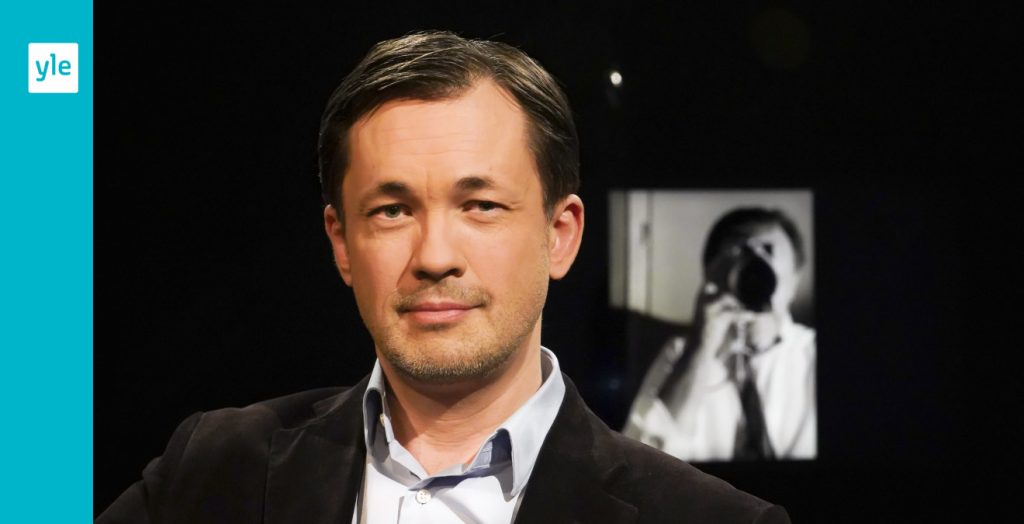Although John Webster avoids a change in his life, this change he wants to achieve through his documentaries. After his last movie Privat grant Finished, he almost immediately set out to complete another film project that he had started three years earlier.
As his own boss with his own workspace, documentary filmmaker John Webster has not spent many days in the open office landscapes that can be seen in the trailer for his upcoming documentary. The happy worker.
Instead, it was the people around him that made him aware of the problems.
It started with a terrible realization of how many unhappy people I know in their workplaces. They are hard working, ambitious, and want a career but they also feel bad.
This is not just an issue that Webster observed in Finland.
It is a global phenomenon. There is just something in our way of organizing office work that makes people lack enthusiasm and feel so bad.
world problem
To find answers to what makes people feel bad at work, Webster visited offices around the world.
– Millions of people wandering around and playing theater that all is well, is his observation.
You walk around in silence, because you are afraid of being kicked out.
Suffering people in silence is something that is also believed to be a big part of the problem, if not the biggest part.
There is a culture of not expressing feelings while you walk around and be quiet, because you fear being fired in the next reorganization.
And this, according to Webster, is not driving anywhere.
They think they are alone with the problem, but in reality 80 percent of office workers are disconnected and unenthusiastic.
And on a spiral
Webster says that what causes a large part of the problems in workplaces around the world is poor leadership.
I would say that 70 percent of problems in the workplace are due to mismanagement. One of the reasons contributing to this is that we have a tradition of becoming a manager as a reward for being good or doing a good job, regardless of whether or not you can lead people.
It should really be a warning sign if someone is feeling bad in the workplace.
Bad managers don’t care about an employee’s individual needs and strengths. An evil spiral, in turn, affects the workers, who are exhausted at worst. And not only that. Also, the employee who overworked himself is the one who gets bulldozed by problems.
Burnout is a person’s fault. You are considered weak and incompetent and you are doing something wrong, because it is actually something wrong in working life. It should really be a warning sign if someone is feeling bad in the workplace.
It also applies to the happiest country in the world
What is the situation like in offices located in the happiest country in the world, Finland?
In the engineering nation of Finland, we excel at finding comfortable solutions, offering good chairs and good lighting, says Webster. But he thinks this is not enough.
Engineering thinking doesn’t work on mental well-being, as you have to think differently.
According to this year’s work life metric, the vast majority were satisfied or very satisfied with how work progressed during the past year when they had the opportunity to work remotely.
Boy In Helsinki, May 2, 1967.
Son Of two British teachers who came to Finland in the 1950s. “They have been classmates for many years,” says John, “but after a party they started looking at each other with new eyes.”
Such as 12-year-old John lost his father in hemorrhagic wings. It affected him in many ways. Among other things, because he had to take over his father’s cameras. “If my father lived longer, I wouldn’t have started filming or become a filmmaker.”
Bohr Today in Kilo, Espoo with his wife Anu and his two children. John Diana’s mother lives next door.
Har He has published a large number of documentaries on various topics. During his years as a filmmaker, he documented human trafficking, vacuum cleaner sales, and climate change. His latest movie is the last interview with Jorn Donner before his death.
Current with: Upcoming documentaries about working life and burnout, The happy worker. The movie premieres this winter. He was recently awarded the Church Culture Award for his film eye for an eye Which was first shown a year ago.
Curious: For 40 years he tried to get the perfect Dry Martini drink, but it still hasn’t worked. “Jörn Donner would have given me his prescription, but we were interrupted. He brought the prescription to the grave.”
With telecommuting, half of respondents took a break from the office during the previous year. Could it be a contributing factor to more people feeling satisfied?
Webster doubts the results of the working life scale.
There is a difference between how well things do and how happy you are or if you enjoy them.
He does not believe that telecommuting will be the solution to today’s working life problem.
– There is a risk that after Corona we say, “Hello, we no longer need offices, everyone can work at home and we do not need to build more expensive office buildings.”
But if we all work alone at home, we also lose community, and we cannot do without it, Webster recalls.
John Webster’s documentary The happy worker The premiere this winter.
John Webster Daniel Olin will be visiting tonight at 20.00 on Yle Five and on Monday 29.3 A longer version of the interview can be heard on Yle Vega at 19.22. The interview is also available at Yle Arena.
Hear John Webster talk more about how his father’s death affected his career choice and why he feared change. The entire interview is available at Yle Arenan:

“Lifelong food practitioner. Zombie geek. Explorer. Reader. Subtly charming gamer. Entrepreneur. Devoted analyst.”







More Stories
An award-winning British comedy show will wow audiences in Delhi
James Cameron supports Marlowe Film Studios ahead of planning vote
Rebel Wilson adds new lines in the UK version of the book following Sacha Baron Cohen allegations